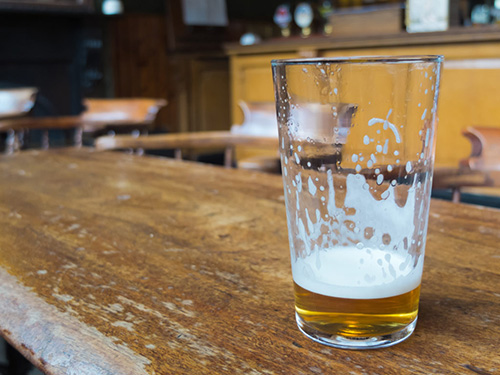Remember the days when a pub was a pub? Where you went for a quiet drink to unwind after a hard day. A place where you could meet your friends, or pop in knowing there would always be someone up for a chat. A place where you could play a game of dominos or shove ha’penny, and people made their own entertainment. Well, they’re back! After years of decline, the face of the UK’s pub culture is changing.
What is a micropub?
Wondering what a micropub is? Where have you been for the last ten years? As the name suggests, a micropub is a small pub. Some are so small, they don’t actually have a traditional bar. They’re often set up in former shop premises.
Typically, micropubs serve real ales brewed locally by micro-breweries, cider and wine. If you’re driving, the alcohol free tipples are likely to include old favourites like dandelion and burdock, ginger beer and traditional lemonade.
If you visit a micropub, don’t expect to watch the footie on a wide screen TV or plan on sinking a few pints of lager. Lager is definitely not part of the micropub culture! And you can forget about playing the one-arm bandit or feeding coins in the juke box too. But if you’re looking for a convivial atmosphere, good company and conversation, the micropub delivers. Traditional games are the preferred entertainment and most will boast a set or two of dominos and a cribbage board.
The first micropub, the Butchers Arms in Herne near Canterbury, opened in 2005. Today, it’s estimated there are around 200 of these traditional hostelries across the UK. And they have become so popular, there is even a Micropub Association which currently boasts over 1500 members.
Secrets of their success
So why, when British pubs are still closing at a rate of around 30 a week, are micropubs bucking the trend?
First up, it has to be the beer. While (according to CAMRA) 70% of all pubs now serve real ale, micropubs favour their local micro-breweries. It’s a match made in heaven. These small breweries brew artisan ales and don’t have (or probably want) the resources or production capabilities to mass produce their beer. So if you’re visiting a micropub, you’re going to get a real ale experience that you won’t find in any national chain pub.
Atmosphere must come a close second to beer. In case you haven’t noticed, there’s a wave of nostalgia sweeping the country and everyone yearns for a slower pace of life. Go back 40 or 50 years and there was a ‘local’ in every neighbourhood, often on the street corners. Bars were small, cosy and intimate. You had a choice of rooms and the price of your drinks depended on which bar you chose to frequent.
Then in the 70s and 80s, along came the modernisation mob who, with a few swift blows of their sledgehammers, did away with the traditional pub that we knew and loved. Cosy bars were turned into efficient open-plan wildernesses devoid of atmosphere.
 Interior designers inflicted us with their own versions of traditional pub décor. Did they seriously think we’d be fooled by old bicycles and gardening implements hanging from the ceiling of a city pub? Back in their day, the bikes would have been outside leaning against the kerb where they belonged and the tools would have been locked up on the allotment!
Interior designers inflicted us with their own versions of traditional pub décor. Did they seriously think we’d be fooled by old bicycles and gardening implements hanging from the ceiling of a city pub? Back in their day, the bikes would have been outside leaning against the kerb where they belonged and the tools would have been locked up on the allotment!
Such was the scale of this modernisation that in 1991 a ‘National Inventory’ of historic pub interiors was started. According to CAMRA only 265 of our traditional pubs escaped unscathed!
The breweries’ stranglehold on pubs meant landlords were unable to operate profitably and looked for ways to increase sales and their revenue. Cable and satellite TV and more one-arm bandits and space invader games than you could shake a stick at, were brought in to attract customers and increase revenue. They provided yet another nail in the pub’s coffin. Wide screen TVs on every wall killed the art of conversation. Pubs, once the exclusive domain of adults, began to add children’s play areas to attract the family market. Traditional pub grub morphed into the gastro food experience.
Is it any wonder that we’ve abandoned our once traditional British pubs and we’re flocking to the micropubs instead? Is there one near you? Check out the Micropub and Micro Brewery Association and let’s get behind them and support these independent enterprises that are putting British pubs back on the map.

